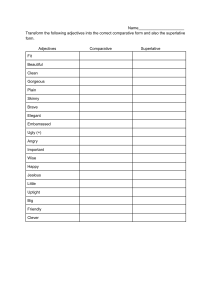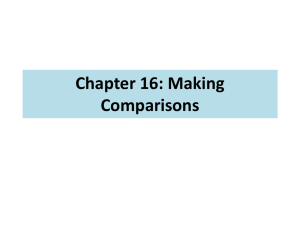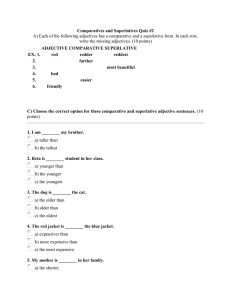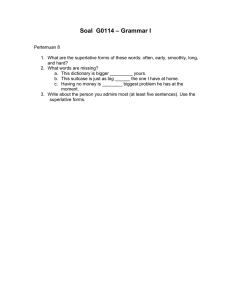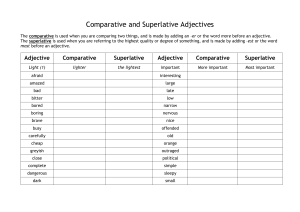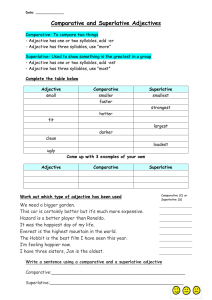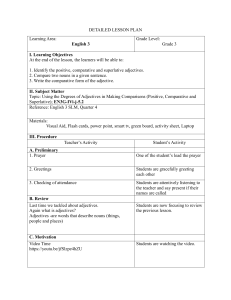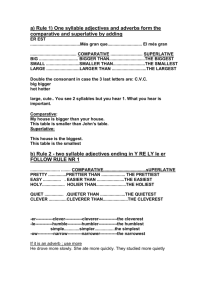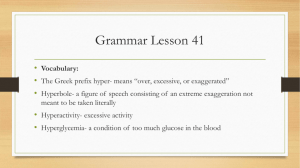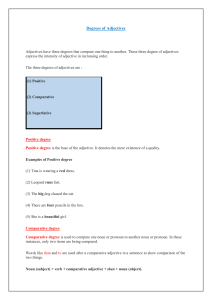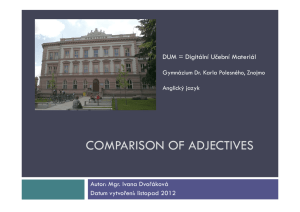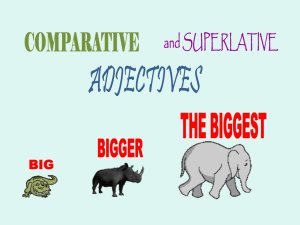COMPARATIVE AND SUPERLATIVE ADJECTIVE FORMS
advertisement
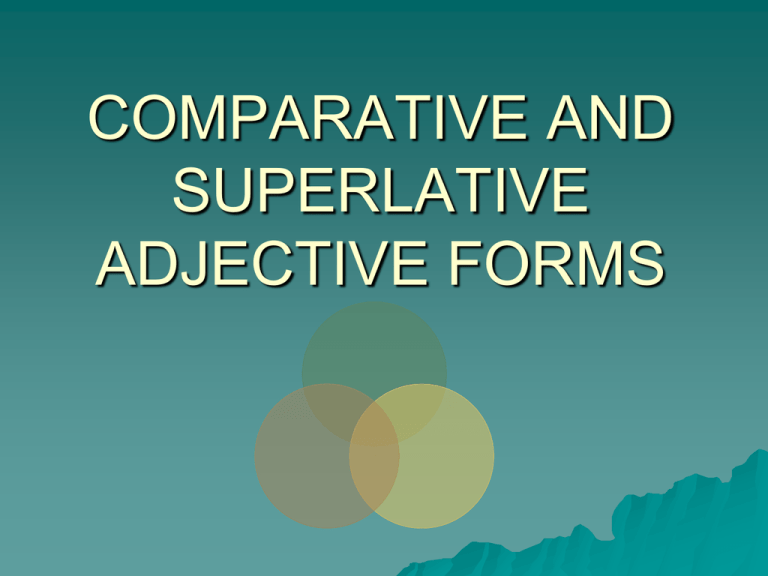
COMPARATIVE AND SUPERLATIVE ADJECTIVE FORMS The comparative form of an adjective compares two things, groups, or people. EXAMPLE: The stone building is larger than the wooden building. The superlative form of an adjective compares more than two things, groups, or people. EXAMPLE: The largest building of the three is made of stone. EXPLANATION For most adjectives of one syllable and some of two syllables, -er and –est are added to form the comparative and superlative. POSITIVE COMPARATIVE SUPERLATIVE tall healthy early roomy windy taller healthier earlier roomier windier tallest healthiest earliest roomiest windiest For most adjectives with two or more syllables, the comparative and superlative are formed by adding more and most before the adjective. EXAMPLES: The archeologist made an impressive discovery while digging in the ruins. Her latest discovery is more impressive than her first finding. Her new discovery is the most impressive finding of the decade. EXPLANATION: The words less and least are used before both short and long adjectives to form the negative comparative and superlative. EXAMPLES: The public was unusually curious about the discovery. The public was less curious about ancient ruins than about prehistoric fossils. Of all the ancient buildings unearthed in this century, historians were least curious about that Greek temple. EXPLANATION: Some adjectives form irregular comparatives and superlatives. POSITIVE COMPARATIVE SUPERLATIVE good better best well better best bad worse worst many more most much more most little less least
